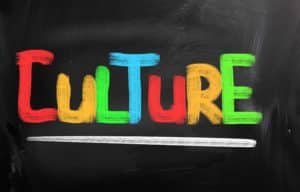
So, how much does consideration of this culture matter when it comes to hiring?
Quite a lot, it would seem. According to a study conducted by Glassdoor of more than 5,000 adults across the U.S., the United Kingdom, France, and Germany, 77% noted they consider a company’s culture before applying for a job. And 56% say that when it comes to job satisfaction, company culture trumps salary. Employees no longer stay with a business for a lifetime, just waiting for retirement.
“Candidates are attracted to culture, and that makes it a tool for us as leaders to draw in talent that understands our culture and adds to it,” says Marilyn Tyfting, CCO at TELUS International.
Seriously, hiring with attention to cultural fit makes sense. Sifting through candidates to find those who, in addition to having an overall positive attitude, possess core values that align with your company’s core values is well worth the time and effort.
Now that we have covered the why, let’s move on to the HOW of attracting/retaining the best-fit employees to your company.
- The initial, crucial step must be a comprehensive definition and understanding of what makes up the company’s culture. Otherwise, there is no “fit” to measure against or “fit into,” right?
- Be mindful that hiring for cultural fit does not mean the goal is to recruit clones. Diversity among employees as it pertains to their strengths and life experiences will add depth to your organization. The ultimate goal? To add folks who support the company’s values and ethics, who share a passion for and believe in the same customer promise, whose individual strengths, personal experiences, and even career aspirations fill existing gaps.
- Tailor questions that will uncover a person’s values. “The interviewing process aims to separate those that understand what they stand for from those who just want a job and will say want they think the interviewer wants to hear,” suggests Colin D. Ellis. “Ask candidates to describe their values and how they live them on a day-to-day basis. Include questions around how the candidate would apply the organizational values and remain resilient in stressful situations.“
- Remember to look beyond a candidate’s hard, technical skills. Those points may get him/her the interview, but the soft skills a candidate does—or does not—possess are as important if not more so. Especially when it comes to cultural fit. “Skillset is essential,” suggests Tyfting, “but we’ve learned that receptiveness to coaching, emotional intelligence, motivation, and temperament are more likely to lead to success.”
Matching you with the best-fit, most qualified talent is the A.R. Mazzotta’s way. Helping your business grow is our team’s number one passion. Connect with one of our staffing experts today.
